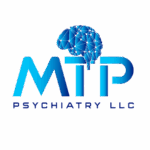In the swiftly changing domain of mental health care, Psychiatric Mental Health Nurse Practitioners (PMHNPs) are emerging as essential leaders—particularly within the next-generation care model referred to as Collaborative Care 2.0. This updated approach combines traditional collaborative care with state-of-the-art artificial intelligence (AI) technologies, transforming the delivery, monitoring, and optimization of psychiatric care. As healthcare systems encounter a heightened demand for behavioral health services, particularly in the aftermath of the pandemic, AI-enabled collaborative care is providing immediate solutions that alleviate workload, enhance diagnostics, and boost patient engagement.
In contrast to conventional models that depend exclusively on human interaction, this new frontier utilizes tools such as clinical decision support algorithms, remote monitoring systems, digital phenotyping, and predictive analytics. These advancements facilitate early symptom identification, prompt intervention, and consistent continuity of care—areas where PMHNPs can excel. For instance, AI-integrated platforms can notify a clinician when a patient’s wearable device identifies sleep disturbances associated with depressive relapse or trigger alerts if voice tone analysis indicates a potential psychotic episode.
PMHNPs are particularly well-prepared to utilize these tools due to their comprehensive training, advanced clinical judgment, and increasing authority to prescribe and lead interdisciplinary teams. As Collaborative Care 2.0 gains traction, the role of PMHNPs is evolving from supportive to strategic—positioning them at the heart of care planning, quality assurance, and technology integration. This transition is not merely technological; it is also cultural and clinical, highlighting the importance of empathy, real-time insights, and scalable models that can meet psychiatric needs in both urban and underserved communities.
The Evolution of Collaborative Care in Mental Health
Collaborative care began as a team-oriented strategy where primary care providers, behavioral health consultants, and psychiatric specialists worked together to manage the care of individuals suffering from mental illness—especially within primary care environments. This approach has shown effectiveness in tackling prevalent issues such as depression, anxiety, and PTSD by enhancing communication and accountability among healthcare professionals. Nevertheless, the conventional model has its drawbacks. Delays in time, excessive paperwork, and challenges in accessing specialized psychiatric consultations have often hindered its efficacy, particularly in fast-paced or rural settings.
Enter AI. With its ability to analyze vast amounts of data, forecast outcomes, and streamline workflows, artificial intelligence is revolutionizing the delivery of collaborative care. AI-enhanced collaborative frameworks incorporate digital intake assessments, voice and sentiment analysis for mood monitoring, and algorithmic decision support that identifies at-risk patients in real time. These innovations relieve PMHNPs of administrative tasks, allowing them to dedicate more time to impactful clinical interactions. In the 2.0 model, care coordination is not merely efficient—it is intelligent.
Furthermore, PMHNPs can now manage larger patient populations by utilizing AI-powered dashboards that emphasize critical cases and provide intervention recommendations based on evidence-based practices. This expansion of capacity is vital in addressing the nationwide shortage of psychiatric providers. As more healthcare systems embrace this advanced model, PMHNPs are positioned at the forefront, steering not only patient care but also shaping institutional policies and technology adoption strategies. Collaborative Care 2.0 is therefore as much about leadership as it is about the delivery of care.

PMHNPs at the Core of AI-Enhanced Interdisciplinary Teams
As collaborative care evolves through the use of AI tools, the responsibilities of PMHNPs are transitioning towards leadership roles in clinical decision-making, triage, and digital integration. Unlike general nurse practitioners, PMHNPs possess specialized expertise in psychopharmacology, diagnostics, and therapeutic modalities, positioning them as ideal custodians of AI-assisted care plans. With numerous states granting full practice authority, PMHNPs are now capable of independently diagnosing, prescribing, and managing care—a responsibility that is enhanced by AI systems which improve their reach and responsiveness. For example, AI-enabled platforms can assess symptom severity through speech recognition, identify medication non-adherence using pill sensors, or analyze EMR data to propose cross-titration strategies.
PMHNPs interpret these insights within the context of each patient’s clinical history, allowing them to make nuanced decisions rather than adhering strictly to algorithms. Their capacity to merge empathy with analytics distinguishes them in hybrid care models. Collaboration remains essential—but now, machines are integral members of the team. Primary care physicians, psychologists, social workers, and AI systems create an integrated network where PMHNPs act as clinical anchors. They educate colleagues on the use of AI tools, engage in digital quality improvement committees, and supervise the ethical deployment of AI. Rather than replacing providers, AI serves as a catalyst for enhanced clinical care—enabling PMHNPs to lead with accuracy, speed, and scalability.
Benefits and Challenges of AI in Collaborative Psychiatric Practice
The incorporation of AI into collaborative psychiatric frameworks offers numerous advantages. Efficiency sees a significant enhancement as AI takes over repetitive tasks like scheduling appointments, managing documentation, and conducting basic symptom assessments. Furthermore, accuracy is heightened—predictive algorithms can identify potential suicidality, adverse medication reactions, or risks of relapse more swiftly than teams composed solely of humans. For patients, this translates to earlier interventions, tailored care plans, and smooth coordination among healthcare providers.
Nevertheless, these advancements are accompanied by challenges. A primary concern is the issue of data privacy. AI systems depend on extensive amounts of sensitive patient data, which necessitates secure storage and transmission. PMHNPs are required to remain informed about HIPAA-compliant technological practices and data-sharing protocols. Additionally, there exists the danger of excessive dependence on AI—clinicians must strike a balance between technology and human judgment, ensuring that care remains focused on the patient rather than being driven by protocols.
Ethical issues also emerge. Algorithms must be devoid of bias, particularly in racially and culturally diverse groups. PMHNPs are in a unique position to champion equitable AI design by engaging in clinical trials, serving on advisory boards, and conducting technology audits. Moreover, gaps in training must be addressed. Institutions should prioritise investing in enhancing providers’ AI literacy so they can utilize these tools with confidence and competence. Although the learning curve may be steep, the benefits—enhanced outcomes, increased job satisfaction, and broader access to care—render the effort worthwhile.

Conclusion
Collaborative Care 2.0 transcends mere terminology; it represents a transformation towards intelligent, integrated, and patient-focused psychiatric care. Within this framework, PMHNPs are not merely participants; they are trailblazers. Armed with extensive clinical knowledge, increasing autonomy, and a dedication to holistic care, they are exceptionally positioned to spearhead this movement. By viewing AI as a partner instead of a competitor, PMHNPs can enhance diagnostic precision, optimize workflows, and broaden their outreach to patients who have previously been overlooked.
The advantages are numerous: diminished burnout through automation, enhanced treatment customization, and expedited access to psychiatric services. As healthcare systems endeavor to achieve more with limited resources, PMHNPs who comprehend and navigate AI-augmented collaborative care models will prove to be indispensable. However, leadership entails responsibility—prioritizing ethical, secure, and inclusive implementation must remain paramount. Ultimately, the integration of human compassion with machine intelligence is not intended to supplant clinicians but to elevate their capabilities. For PMHNPs, this represents a pivotal opportunity. Collaborative Care 2.0 has arrived—and they are the architects of the future.
FAQ's
Q1. What is Collaborative Care 2.0 in mental health?
Collaborative Care 2.0 is an updated model of mental health care that integrates traditional team-based psychiatric treatment with artificial intelligence tools. It enhances care coordination, early intervention, and clinical decision-making through technologies like predictive analytics, wearable monitoring, and automated documentation support.
Q2. How are PMHNPs uniquely positioned to lead AI-integrated care models?
PMHNPs possess specialized psychiatric training, full practice authority in many states, and expertise in psychopharmacology and therapy. These skills allow them to effectively interpret AI-generated insights, manage interdisciplinary teams, and make clinically sound, patient-centered decisions.
Q3. What technologies are used in AI-enhanced collaborative care?
Common tools include AI-powered triage bots, digital symptom checkers, speech/sentiment analysis engines, wearable health trackers, EMR-integrated decision support systems, and automated documentation generators. These tools help clinicians monitor, diagnose, and treat more efficiently.
Q4. What are the ethical concerns surrounding AI in psychiatry?
Key ethical concerns include data privacy, algorithmic bias, and the risk of dehumanizing care. PMHNPs play a critical role in safeguarding patient rights, ensuring informed consent, and participating in the design and oversight of ethical AI deployment in clinical settings.
Q5. Will AI replace psychiatric nurse practitioners in the future?
No—AI is designed to augment, not replace, PMHNPs. While it streamlines tasks and improves accuracy, human clinical judgment, empathy, and relational care remain irreplaceable. AI is a tool that empowers PMHNPs to deliver better, faster, and more scalable care—not a substitute for their expertise.

